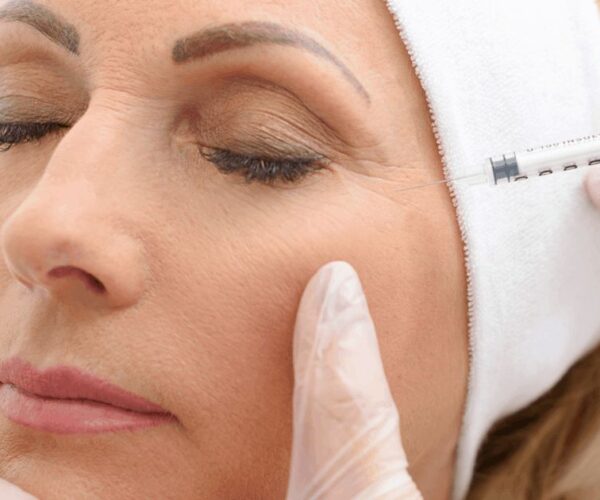In today’s digital era, the Internet of Things (IoT) has revolutionized various industries, including healthcare. The integration of IoT in medical device marketing has paved the way for smarter solutions and innovative marketing strategies. By harnessing the power of IoT technology, companies can deliver personalized experiences, improve patient outcomes, and drive business success. This blog delves deeper into the utilization of IoT in medical device marketing, exploring its impact on enhancing product performance, enabling remote patient monitoring, delivering personalized and targeted marketing campaigns, building customer engagement and loyalty, and improving post-market surveillance and support.
Enhancing Product Performance and Connectivity:
IoT integration has transformed medical devices, enhancing their performance and connectivity. By incorporating IoT sensors and connectivity, medical devices can collect real-time data and transmit valuable insights to healthcare professionals. This data-driven approach allows for improved patient care, better monitoring of vital signs, and more accurate data analysis. Medical device marketers can leverage these capabilities to showcase the effectiveness and value of their products, driving trust and adoption among healthcare professionals and consumers alike. For example, IoT-enabled devices can continuously monitor patient health parameters, providing healthcare professionals with real-time updates and enabling proactive interventions, resulting in better patient outcomes.
Enabling Remote Patient Monitoring:
One of the significant applications of IoT in medical device marketing is remote patient monitoring. IoT-enabled medical devices, such as wearables and home monitoring systems, have revolutionized how patients’ health conditions are monitored outside traditional clinical settings. These devices collect and transmit patient data, enabling continuous monitoring of vital signs, medication adherence, and disease management. Healthcare professionals can remotely access this data, enabling timely interventions and personalized care. Remote patient monitoring enhances patient engagement and provides valuable insights for medical device marketers. Manufacturers of medical devices can show how their products encourage patients to take an active role in their healthcare journey, leading to better adherence to treatment and overall improved outcomes.
Delivering Personalized and Targeted Marketing Campaigns:
IoT integration allows medical device marketers to deliver personalized and targeted marketing campaigns to both healthcare professionals and consumers. By analyzing the data generated by IoT devices, marketers can gain valuable insights into product usage patterns, patient preferences, and market trends. This information enables them to tailor their messaging, develop personalized marketing campaigns, and deliver targeted content that resonates with their audience. Personalization enhances the customer experience, fosters brand loyalty, and drives sales. For example, by analyzing patient data collected by IoT devices, marketers can identify specific patient needs and preferences, allowing them to customize their messaging and offer personalized product recommendations. This targeted approach not only enhances the effectiveness of marketing efforts but also strengthens the bond between the medical device company and its customers.
Building Customer Engagement and Loyalty:
IoT integration presents tremendous opportunities for medical device marketers to engage and build loyalty among customers. By incorporating IoT-enabled applications or platforms, companies can provide additional value-added services such as educational resources, treatment reminders, and personalized health insights. These services establish stronger relationships with customers and position the brand as a trusted partner in healthcare. For example, an IoT-enabled application could offer patients educational content on disease management, personalized treatment plans, and reminders for medication adherence. Medical device companies can enhance customer engagement and loyalty by offering value-added services that foster a sense of community and deeper connection with their customers.
Improving Post-Market Surveillance and Support:
IoT integration enables medical device companies to gather real-time data on product performance, usage, and patient outcomes. This data is invaluable for post-market surveillance, allowing companies to proactively address issues, improve product design, and enhance patient safety. For instance, IoT sensors embedded in medical devices can continuously monitor their performance, detect anomalies, and transmit data to the manufacturer. This allows for timely interventions and product improvements, ensuring the safety and satisfaction of patients. Furthermore, IoT technologies enable companies to provide better customer support by identifying potential issues, offering troubleshooting assistance, and facilitating seamless device updates. This level of support builds trust among customers and strengthens their loyalty to the brand.
Conclusion:
In conclusion, the utilization of IoT in medical device marketing offers numerous benefits for both companies and patients. By enhancing product performance and connectivity, enabling remote patient monitoring, delivering personalized and targeted marketing campaigns, building customer engagement and loyalty, and improving post-market surveillance and support, medical device marketers can achieve significant success in a highly competitive industry. Embracing IoT technology allows companies to innovate, differentiate themselves from competitors, and ultimately improve patient outcomes. As the IoT landscape continues to evolve, medical device companies must stay at the forefront of technological advancements to unlock the full potential of smarter solutions and smarter marketing.
FAQs:
Q1: What is the Internet of Things (IoT), and how does it apply to medical device marketing?
A1: The term “Internet of Things” (IoT) refers to a system of linked physical devices that gather and share data via the Internet. In medical device marketing, IoT integration enables medical devices to collect real-time data, monitor patient health parameters, and transmit valuable insights. This data-driven approach improves patient care and allows medical device companies to demonstrate the effectiveness and value of their products.
Q2: How does IoT technology benefit supplements marketing?
A2: While IoT technology is primarily applied in medical device marketing, there are potential benefits for supplements marketing as well. For example, IoT-enabled packaging solutions can provide real-time information on product usage, expiration dates, and reordering needs. This connectivity allows for targeted marketing campaigns, personalized recommendations, and convenient reordering options for consumers, enhancing their supplement consumption experience.
Q3: Can IoT improve post-market surveillance for medical device companies?
A3: Yes, IoT integration enables medical device companies to gather real-time data on product performance, usage, and patient outcomes. This data facilitates post-market surveillance, allowing companies to proactively address issues, improve product design, and enhance patient safety. Additionally, IoT technologies enable companies to provide better customer support by identifying potential issues, offering troubleshooting assistance, and facilitating seamless device updates.




